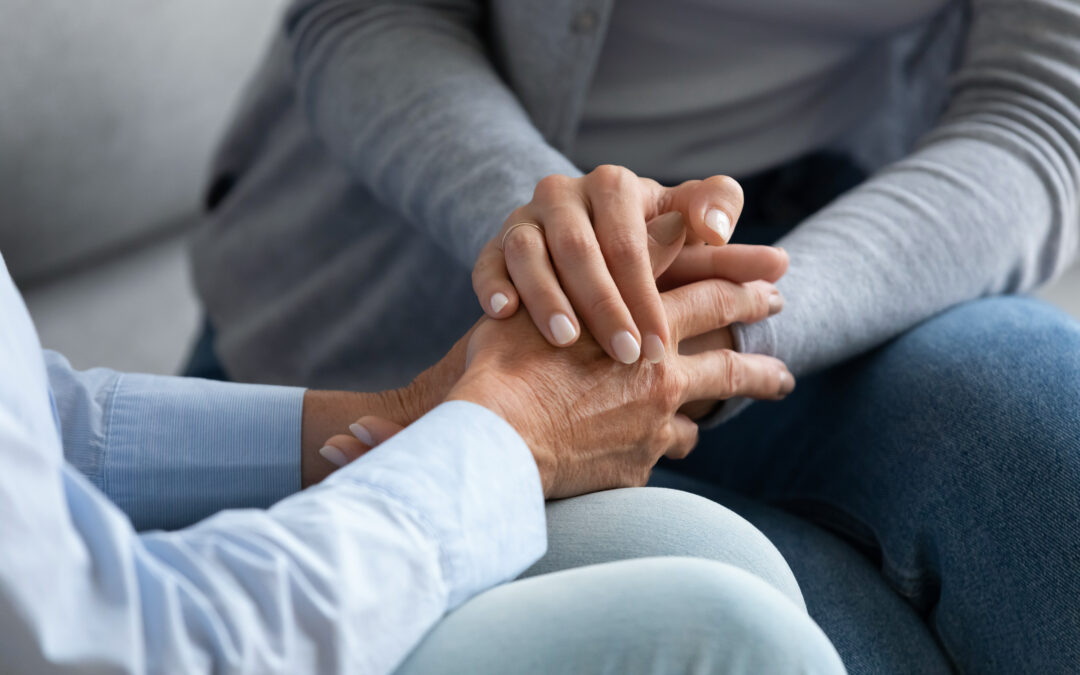Separation, sickness and death. These are an inevitable part of life and understandably result in much distress and anguish. Most people undergo a transient period of emotional turmoil and transit through the various stages of grief over time. The 5 stages of grief are Denial, Anger, Bargaining, Depression and finally, Acceptance.
In a “normal” grief reaction, one may experience denial, disbelief and emotional numbing for the first few hours to days. One then develops depressive and anxiety symptoms which can last for several weeks to months. This may be accompanied by feelings of anger, guilt, blaming, and irritability. In 10% of survivors, there could be illusions or hallucinations of the deceased’s voice. Most survivors progress to the final stage of grief within 6 months, where they slowly gain acceptance towards the loss, regain their ability to perform their social and occupational roles. Memories of the good times are retained, while the anguish over the loss diminishes significantly.
It is important to recognize that we all deal with loss and grief differently, and individual responses vary greatly. It is also worth noting that the above symptoms of depression, anxiety and anger can recur during the death anniversaries or other significant occasions (e.g. birthday, wedding, special occasions and festivals).
Nevertheless, there are minority cases where the grief reaction is so intense, protracted or distorted, that it severely hampers the ability of the survivor to lead a normal life. We call this an abnormal grief reaction, also known as complicated grief or pathological grief. 30% of those who have such reactions meet the diagnostic criteria for Major Depressive Disorder, and most will benefit from professional help.
Risk factors
- When the death is unexpected, sudden
- Unnatural deaths
- Death of younger persons in the family (unexpected)
- No time to grieve properly
- Complex relationship with the deceased
- Close, dependent or ambivalent relationship with deceased
- Difficulty expressing feelings
- Survivor has to care for dependent children and cannot show grief easily
Types of complicated / pathological grief
- Prolonged grief (more than 6 months)
- Unusually intense grief
- Delayed grief reaction – more common after sudden, unexpected, traumatic deaths
- Inhibited grief – a lack of normal emotions associated with grief
- Distorted grief – Unusual in degree or nature of symptoms eg. Hostility, overactivity, physical symptoms
Symptoms
- Persistent avoidance of situational reminders of death
- Intense prolonged sadness which is persistent beyond the expected duration
- Delusions of guilt – falsely believing that one is responsible for the death
- Psychomotor retardation – abnormal slowing of thoughts and movements
- Global loss of self-esteem
- Loss of appetite, sleep disturbances
- Suicidal thoughts
- Mummification – preserving the belongings of the deceased to an extent that is irrational
Treatment
- Psychological Therapy, specifically grief therapy, will be the mainstay of treatment for most cases of complicated grief. Grief therapy combines aspects of Cognitive Behavioural Therapy and Interpersonal Therapy and aims to help survivors come to acceptance with and adjust to life without the deceased. Other psychotherapeutic approaches could be complementary in facilitating holistic psychosocial recovery in the survivor.
- Anti-depressant Medications could be helpful to alleviate the severity of depressive symptoms
- Sleeping Aids can help to improve sleep which is crucial in memory processing and helping our minds to move through the stages of grief
- Practical Help
- Crisis Intervention
SEEK HELP TODAY
The goal of treatment is to help the individual navigate the stages of grief. With proper treatment and
advice, almost all patients improve and come to terms with their loss. If you or a family member is
struggling with grief and loss, do not hesitate to contact us for a chat.
Simply call or whatsapp us to arrange a consultation with our psychiatrists or psychologists. Sometimes, it helps to realise that the best way to honour the deceased is to lead a good life ourselves, or on their behalf.
Simply call or whatsapp us to arrange a consultation with our psychiatrists or psychologists. Sometimes, it helps to realise that the best way to honour the deceased is to lead a good life ourselves, or on their behalf.

